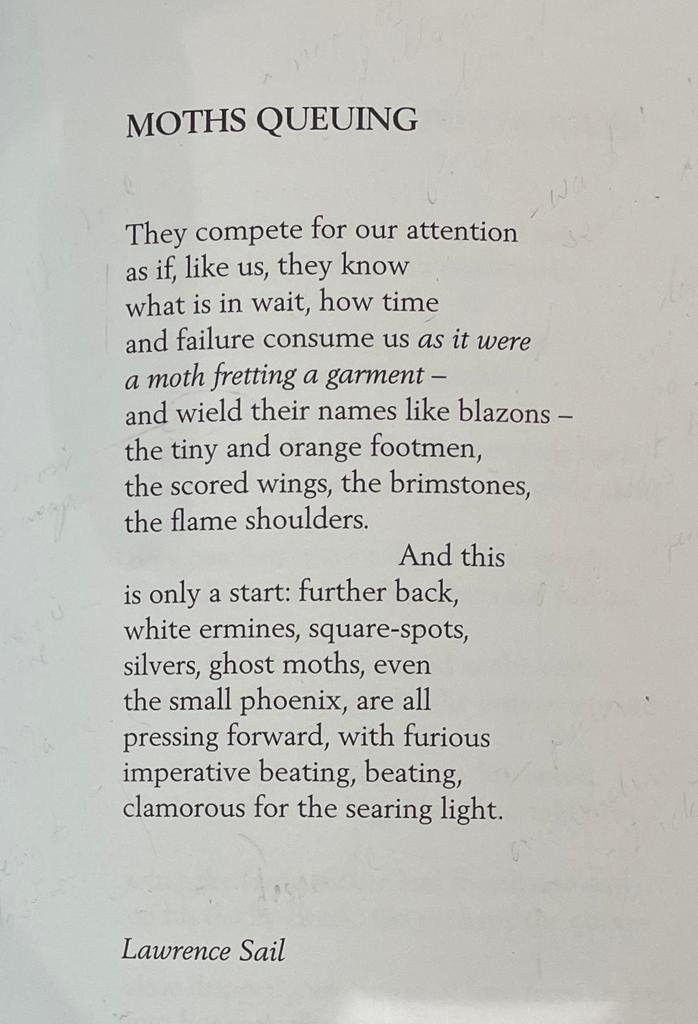Unseen poetry - Moths Queuing
This unseen poetry response was written in about 20 minutes, after a discussion with a student. Many of the analytical ideas in this response came from the student. The poem comes from The Rialto, edition no 89, summer 2017. The Rialto (www.therialto.co.uk) is an excellent publication and a great resource for all that’s best in contemporary poetry.
In ‘Moths Queuing’ how does the poet present the speaker’s attitude to moths?
Initially, the poem seems to take a light hearted view of moths. ‘Moths Queuing’ is an amusing title as anyone who has ever seen moths gather around a flame, knows that they never form an orderly queue. This tone continues in the first line as the speaker suggests that the moths are ‘competing for our attention’. This also seems ironic, as moths around a flame are surely unaware of humans’ existence. However, the tone changes abruptly at the end of the first line when the speaker attributes much greater existential understanding to the moths, who now also can tell the future and who know that the future only contains ‘failure’: ‘how time and failure consume us’. The speaker’s very dark view is that in the future, there is no light and that we (presumably humanity) can only end in failure. The speaker likens this failure to the efforts of a single moth to ‘fret’ or consume a whole garment, clearly an impossible task. The speaker returns to a personification of the moths who earlier were competing for our attention and now are ‘wielding their names like blazons’ or like a weapon or armour. The moths in this poem want to be known by us.
The moths are also abundant - in the title they are ‘queuing’ and then the speaker lists their names (or their descriptions?) at length in the first stanza, and then again in the second stanza. These moths are numerous and varied. The abundance could suggest something about the natural world, particularly its destruction, given the inevitable failure in the first stanza.
The end of the poem suggests pain and death. The repetition of ‘beating’ is initially referencing the moths’ wings, but inevitably, the reader can hear a physical beating in the connotations of this word too. This sentence is reinforced with the description of the light as searing. More often collocated with heat, ‘searing’ suggests burning which is, after all, the likely fate of the moths.
Overall, this poem uses the moths and their desperate clamour to the light to explore human desperation. As with the fate of the moths in a fireball it suggests that the fate of humanity may be similar.






